05 November 2024
Join Our Lecture on “How Is a Human-Rights Approach to Disability Applied in Higher Education?”
How can higher education use a human-rights approach to better support students with disabilities? J... Read More
The Australia Awards are prestigious, transformational scholarships and short courses offered to emerging leaders for study, research and professional development in Australia

05 Dec 2022
 LINK-STREAM : Connecting between applied STEM (Science, Technology, Engineering and Mathematics) and theories in school for student with and without disability
LINK-STREAM : Connecting between applied STEM (Science, Technology, Engineering and Mathematics) and theories in school for student with and without disability
Project leader: Zubaidah Ningsih
Level of education and university: PhD, Swinburne University of Technology
Collaborating Organisations: Sekolah Menengah Atas Negeri 1 Singosari (SMANESI), Center for Disability Services Universitas Brawijaya (CDS -UB), Sekolah Luar Biasa (SLB) Pembina Tk. National Bag. C Malang
Project Location: The project will take place in Universitas Brawijaya and Sekolah Menengah Atas Negeri 1 Singosari (SMANESI) Malang Jawa Timur. The project will also be conducted in SLB (Sekolah Luar Biasa Megeri) PEMBINA TINGKAT NASIONAL BAGIAN C MALANG in Malang.
Activity Type: Capacity building, mentoring or coaching
Sector: Education and Training, Disability Services, Economics
Project Rationale:
Indonesian students are considered to have low competencies in reading, math and science. Based on the Programme for International Student Assessment (PISA) in 2018, Indonesian students ranked 72 from 77 countries in reading, 72 from 78 countries in math and 70 from 78 countries in science. Moreover, students with disability are the marginalised party being left behind in their education. Based on Education Statistics Data in 2018, only 5.58% people with disability in Indonesia participate in education. From this number, only 12.96% continue their education to higher education level. In fact, 91.12% of students with disability participate to elementary and junior high school level. This means the involvement of students with disability in higher education is lacking.
COVID-19 has worsened student engagement in learning due to the restriction of in-class study. Distance learning without proper support systems and technology left students with problematic learning and created learning loss. Studies of the impact of COVID-19 on students conclude that the pandemic has resulted in student learning falling several years behind. Lower levels of learning translate into lower future earnings potential for students and lower economic productivity for nations.
Not only do students need to catch up on their education due to COVID-19, they also need improvement in their comprehension of theories in school. Students also need some insight into how these theories are applied in daily life. This program is intended to increase student understanding of the relevance of STREAM in daily life, their enjoyment especially in reading, maths and science subjects and their awareness of the career opportunities in STREAM related fields. By having this insight, students are expected to have higher engagement and higher competency especially in reading, math and science. Moreover, by understanding the career opportunities for students with disability, this program is intended to motivate students to pursue further study as well as to promote schools to provide support for students with disability.
Project Beneficiaries:
The main beneficiaries are students in high school. In SMANESI, there are 1,118 students while in SLBN there are 174 students with disability. Other beneficiaries of the program are the teachers, in total 116 teachers both form SMANESI and SLBN. University students will become indirect beneficiaries since they will be involved in the community development program as required in their study. Our project is projected to recruit 100 university students.
Priority Development Area:
Economic Recovery
Link with Australian organisation:
Not available
Share this article on:
 Related Project Profiles
Related Project ProfilesThis website uses cookies to improve your website experience. We may also use cookies to analyse website data so that we can improve our online services. To find out more visit our privacy policy.

